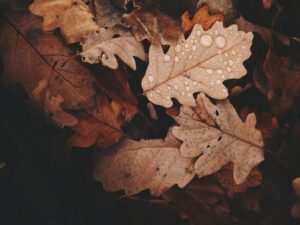Invasive plant species are plants that spread quickly and can cause harm to the environment, economy, or even human health. These plants are usually not native to the area, which means they didn’t originally grow there. Once they start growing, they often take over and push out the native plants, the ones that were there first. This can harm local wildlife that depends on native plants for food and shelter. A surprising way to help stop the spread of these unwanted plants is through something called power sweeping. But what is power sweeping, and how does it work? Let’s dig into it!
Power sweeping is a method often used to clean streets, parking lots, and other paved areas. A power sweeper is like a big vacuum cleaner, but instead of being used indoors, it’s used outside. It’s a vehicle equipped with large brushes and powerful suction. When it moves across surfaces, it picks up dirt, trash, and other debris. The most important part is that it can also pick up seeds and tiny plant parts.
One way invasive plants spread is through their seeds. Seeds can travel far distances by sticking to car tires, shoe soles, and even animal fur. If these seeds land in a new location with the right conditions, they can start growing and take over. By using power sweepers regularly, especially in areas like parking lots, roadsides, and pathways where seeds often gather, we can collect and remove these seeds before they have the chance to spread.
Power sweeping also helps by controlling the loose soil and sand on which plants can grow. Many invasive species are often hardy and can start sprouting in the smallest patches of dirt. When power sweepers clean these areas, they remove not only the seeds but also the soil, making it harder for these plants to establish themselves.
Another benefit of power sweeping is that it can reduce the clutter of twigs, leaves, and other organic matter where seeds might hide. By picking up this litter, sweepers help make it harder for seeds to stay put long enough to grow into full plants. Less debris means fewer hiding spots for these unwanted seeds.
Communities can also benefit from power sweeping because it helps keep public areas clean and safe. This is especially important after storms, which often spread plant debris and seeds across different areas. As people in the community enjoy their cleaner streets and sidewalks, they are also contributing to slowing down the invasion of unwanted plant species.
It’s important for city managers and environmental agencies to work together in creating schedules for regular sweeping. By monitoring areas known for invasive plant problems closely, these teams can focus their power sweeping efforts where they can do the most good.
Power sweeping is just one part of the solution to controlling invasive plant species. It works best when combined with other efforts, like educating people about how these plants spread and encouraging them to clean their shoes and equipment after being in the countryside or parks.
In conclusion, while power sweeping might seem like an ordinary task, it plays a crucial role in minimizing the spread of invasive plant species. By removing seeds, cleaning up soils, and reducing litter, power sweepers help protect our local environments. So next time you see a street sweeper in action, remember it’s doing more than just keeping our streets clean; it’s also a fighter in the battle against invasive plants!









